After the Marawi siege: Women's recovery and peacebuilding in the Philippines
Date:
Author: Carla Silbert
Philippines — Women internally displaced by conflict and violent extremism often face multiple hardships. Loss of livelihoods, insecure housing, and a lack of access to services reduces women's ability to lead recovery efforts and rebuild their homes and communities. Women displaced by the 2017 siege in Marawi City in the Philippine's southern island of Mindanao told UN Women that finding income generating opportunities to restore their livelihoods is their top priority.
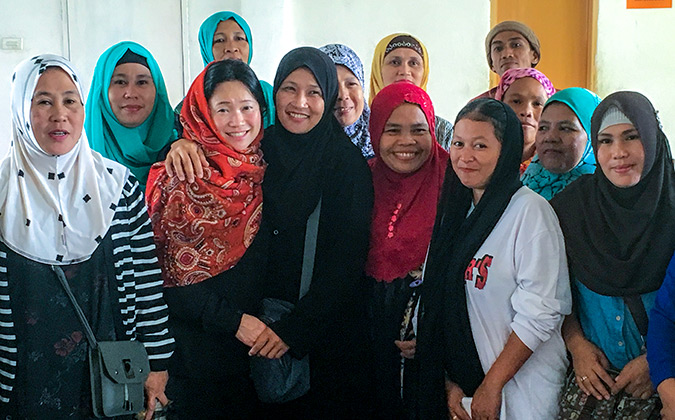
Marawi is the first and only city in the Philippines that has been completely destroyed in conflict. On May 23 2017, the city came under siege from violent extremist groups aligned with local and regional affiliates of ISIS. The battle raged for five months, claiming over 1,000 lives and displacing 77,000 families (nearly 400,000 residents).[1] As of the end of 2017, only 26,400 families had returned to their homes leaving the rest to take shelter with family members in neighbouring areas, or to reside in evacuation centers.[2]
The predominantly Muslim population of Moro people has fought for the right to self-governance for decades. In 2014 a peace agreement was signed between the Moro Islamic Liberation Front (one of the key rebel groups) and the national government to establish an autonomous region to be called the "Bangsamoro". But the slow pace of implementation of the peace agreement, growing alienation especially among the youth, violent local conflicts over land, and the growing international influence of radical religious discourses in social media, mosques, and educational institutions have all given rise to unprecedented levels of violent extremism, which fueled the battle in Marawi. In 2017, the weakening of ISIS control in Syria lead to many fearing that Mindanao could become the potential site of an Asian caliphate.
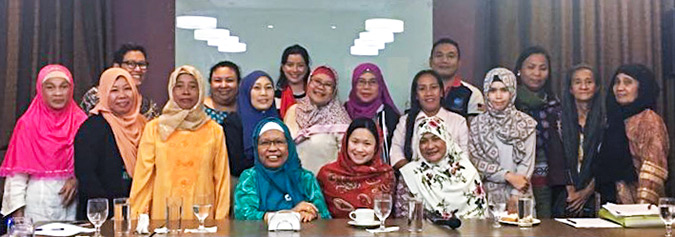
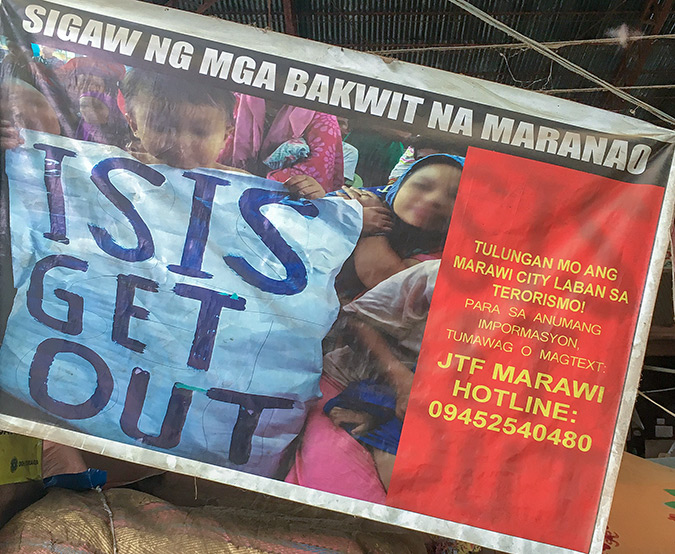
To better understand the experiences of the women who suffered in and fled Marawi City and their priorities for recovery, UN Women, working with partner civil society organizations, started a Listening Process in September 2017, to document the experiences of the women, gather their narratives of how the conflict began, and enable them to voice their needs for recovery and rehabilitation. From 6-8 February 2018, UN Women's Asia Pacific Regional Director Miwa Kato visited the Philippines to continue the discussions with women affected by the siege, and to meet with government, UN and other aid agencies, and NGOs on the ground to better understand women's needs and priorities in recovery and in preventing the recurrence of conflict and violent extremism in their communities.
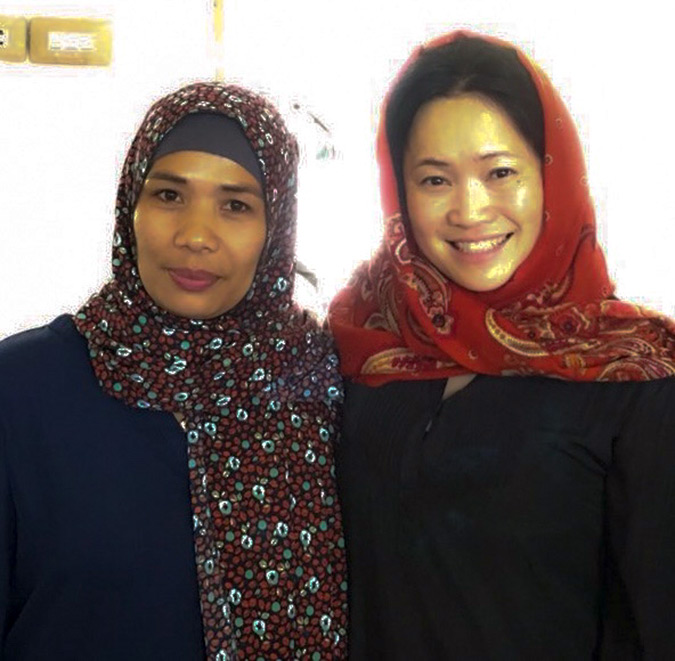
At a shelter in Balo-i (supported by the Asian Development Bank and the World Bank), women survivors shared that they hold little hope of being able to return to their homes in Marawi City in the near future. While families are slowly being resettled in the outlying areas of Marawi, those whose homes were at 'Ground Zero' are unable to return while the security situation remains fragile. Discussions with women also revealed that recruitment of young men by violent extremist groups in the region is rapidly growing, with many offered money and arms to join extremist forces. In addition, young women are also increasingly becoming perpetrators of extremist violence, with some reported to have been snipers in the Marawi combat. The women also reflected that the displacement and lack of income is enhancing the vulnerability of young women to trafficking.
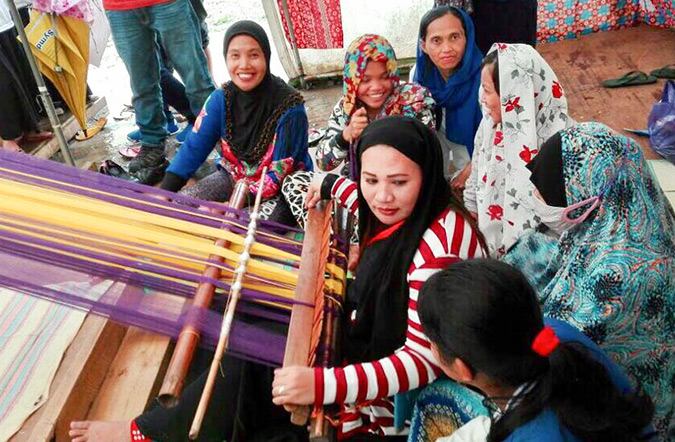
The UN Women team also visited the government-run Buru-un Shelter in Iligan City, which currently houses 439 people. Up to 95 per cent of Marawi IDPs are 'home-based' and residing with family or friends therefore placing burdens on their new households - with many now caring for up to 20 family members - creating financial hardships in providing food and basic necessities, with humanitarian relief delivered only intermittently and focusing instead on those in evacuation centers.
These financial burdens exacerbate the poverty in the region. Meeting with members of the Autonomous Region of Muslim Mindanao Government and Lanao del Sur Provincial Government, the Regional Director heard that there is a 48.7 per cent poverty rate in the region, with waves of displacement due to conflict and natural disasters for the last two decades. The Chair of the Regional Commission on Bangsamoro Women, Jehanne Mutin, reflected on the violent extremism that took hold of Marawi, saying the cause is closely tied to poverty and lack of opportunities, noting that "three years ago we felt it coming - if we had taken it on then, then we wouldn't have reached this point."
Despite the government and aid organizations' efforts to deliver practical support and services to improve the conditions faced by the IDPs, there is still much more needed to be done, especially that which focuses on the needs of women. Throughout the visit to Mindanao, the need for livelihood opportunities and sustainable income generation dominated conversations with the women. This is also key to preventing further radicalization and violent extremism.
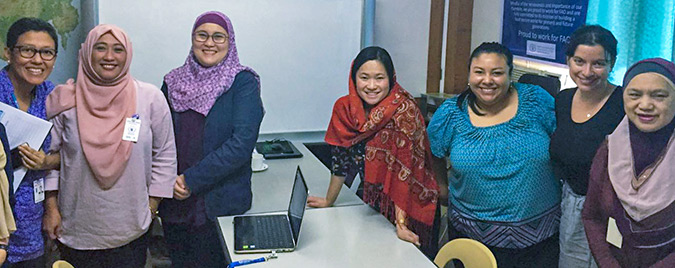
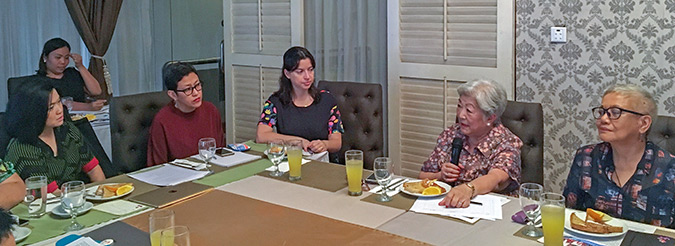
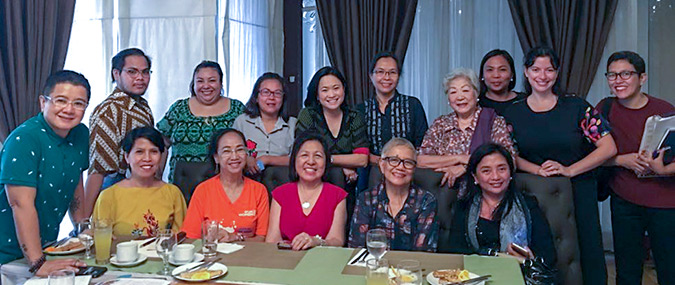
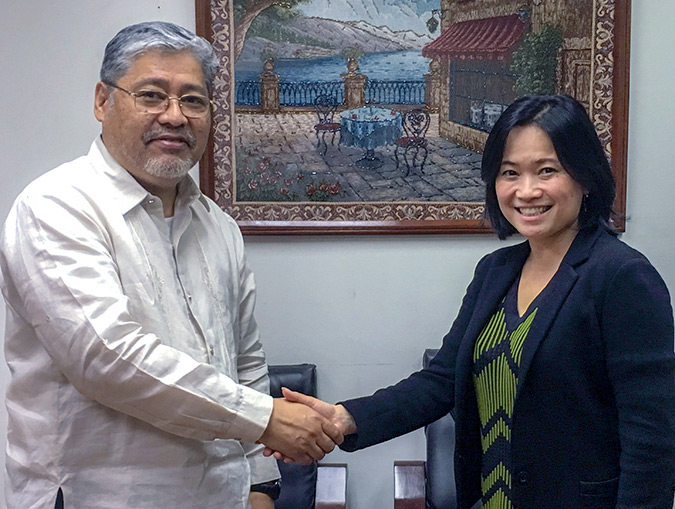
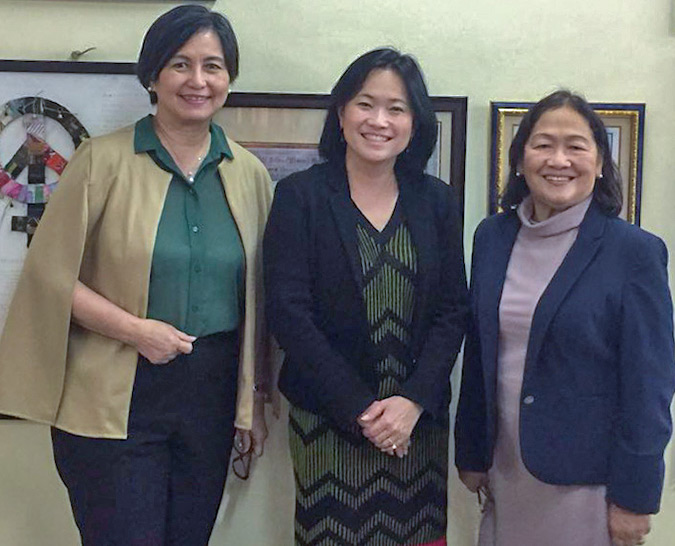
To help support the IDPs and conflict-affected women in southern Mindanao, UN Women will broaden its work in 2018 to promote women's empowerment to prevent the recurrence of violent extremism and conflict, starting this spring. Many lessons will be shared from ongoing successful work in preventing violent extremism though women's engagement in Bangladesh and Indonesia. This work will include strengthening women's economic opportunities and advancing their leadership in the recovery from the Marawi conflict and creating resilient communities, able to withstand the advance of violent extremism.
During her trip to the Philippines, the Regional Director also discussed the way forward with counterparts in Manila, meeting with members of civil society, women business leaders and representatives from the Philippines Commission on Women and the Department of Foreign Affairs to discuss how UN Women can broaden its engagement in the Philippines and support women's empowerment in Mindanao and beyond.
[1] UN Office for the Coordination of Humanitarian Affairs, ‘Philippines: 2017 Key Displacements and Responses’, 2 February 2018.
[2] Ibid